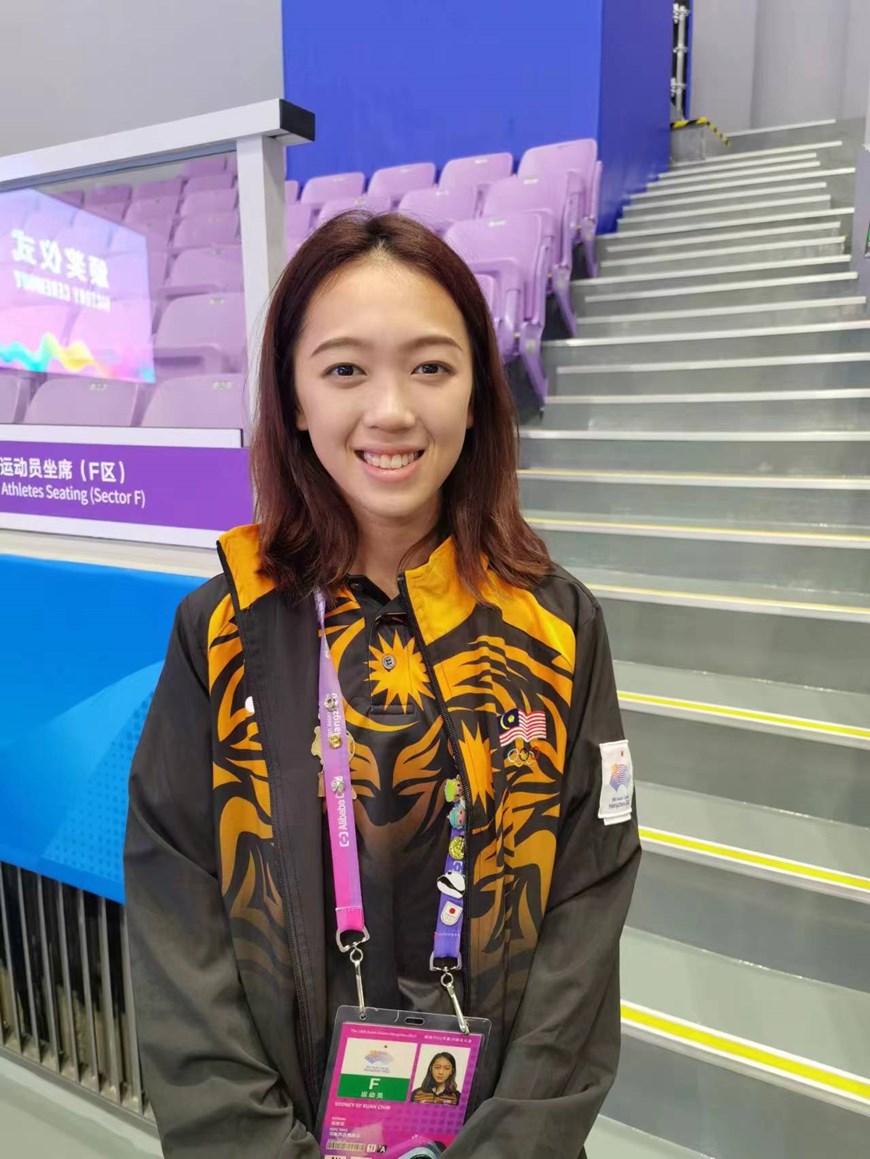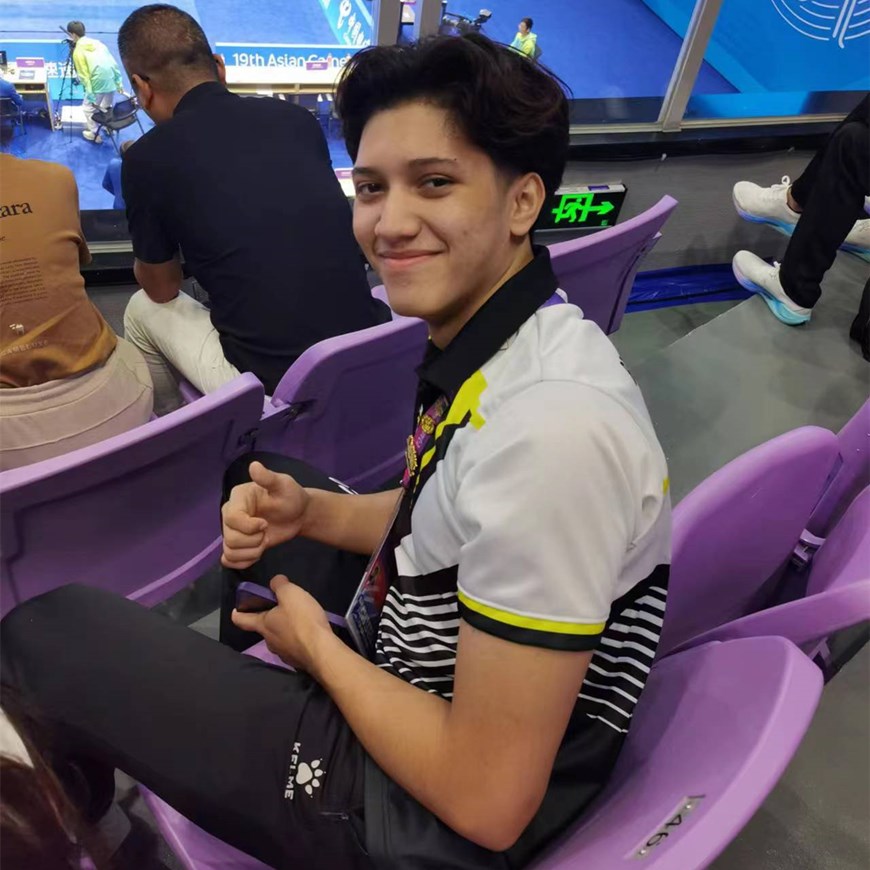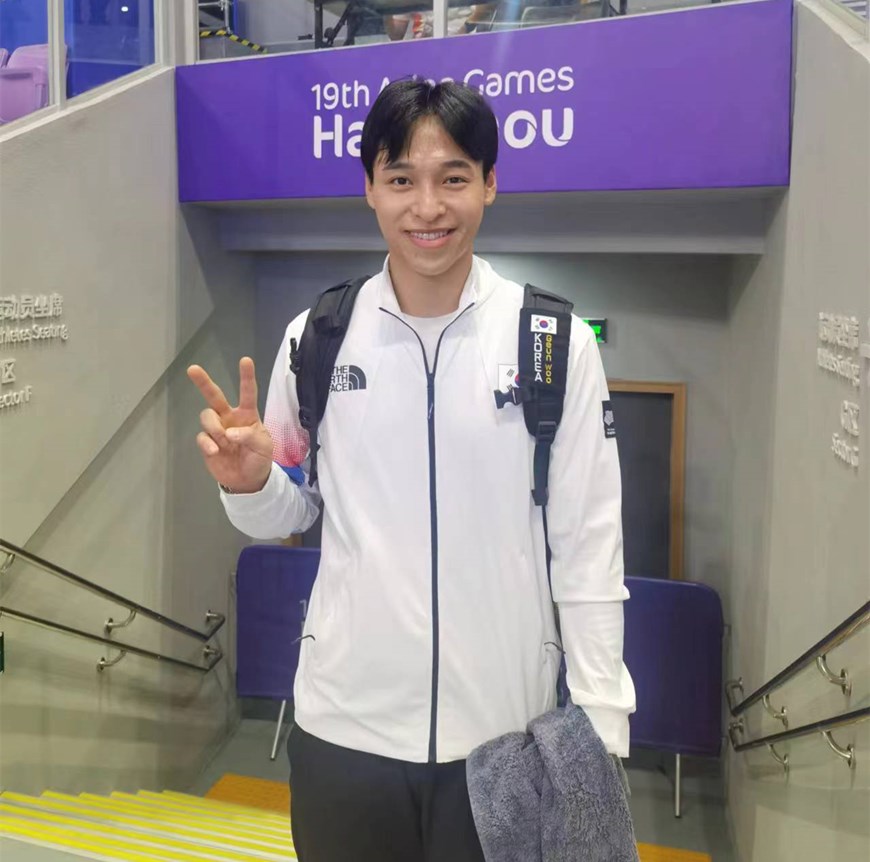 Bridging News
Bridging News
Chinese Martial Arts Shine at the Hangzhou Asian Games
Hangzhou - On September 25, the Asian Games women’s Changquan final and men’s Tai Chi final wrapped up in Hangzhou, with Li Yi from China's Macao and Gao Haonan from the Chinese mainland clinching champions, respectively.
In addition, martial arts teams from China’s Hong Kong and Taipei, Singapore, Japan, South Korea, Thailand, Myanmar, the Philippines, and other Asian countries also competed at these events.
Both Changquan and Tai Chi belong to the Chinese martial arts family. The stadium was packed with Chinese martial arts fans. One group of fans was too special to be ignored, and they were martial arts athletes from different countries. Many of them started to learn and practice Chinese martial arts at a very young age. And what motivates them to choose this sport? What charm do they find in this time-honored sport? iChongqing reporter had interviews with some of them.

Sydney Sy Xuan Chin from Team Malaysia (Photo/ Mu Xuelin)
Sydney Sy Xuan Chin from Malaysia, who took 4th place in the women’s Tai Chi at the Asian Games on September 24, said she had learned Chinese martial arts for 14 years. In the beginning, practicing martial arts like Tai Chi helped her be physically healthier and more robust. Later, she found the charm of Chinese martial arts in improving her confidence and poised temperament.

Walid Lachkar from Team Brunei (Photo/Mu Xuelin)
For Walid Lachkar from Team Brunei, this was his first time competing in the daoshu and gunshu event at the Asian Games. He said that he began learning Chinese martial arts at the age of 7 when he was fascinated by Chinese Kung Fu movies.
Although Thailand has its own national Thai boxing, many Thai people still enjoy Chinese martial arts. Pitaya Yangrungrawin from Team Thailand is one of them. While he cheered his teammate who was competing at the Tai Chi event, he said that he felt proud that they could compete at the Asian Games. At a very young age, he was interested in watching Chinese Kungfu movies, and then he began to learn Chinese Nanquan.

Geunwoo Park from Team South Korea (Photo/Mu Xuelin)
For Geunwoo Park from Team South Korea, the Hangzhou Asian Games was the first international sports event he had joined. He said he felt proud and a little bit pressured. At 15, he found Changquan, a kind of Chinese martial art, was the most handsome sport, especially when he practiced it; he felt so calm. With over ten years of practice, he is now qualified to compete on the international stage.
 Related Stories
Related Stories